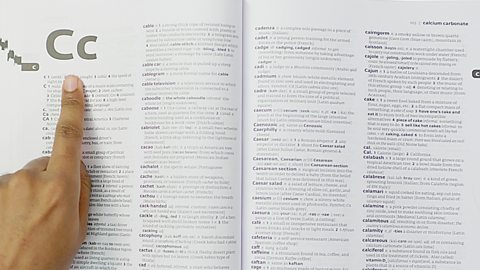Did you know?
The word ‘plural’ comes from the Old French ‘plurel’ which means ‘more than one’.
Introduction to plural nouns
A plural noun is used when there is more than one of something
Most nounA naming word for an object, idea, person or place. follow rules to turn them into plural nouns
Some plural nouns are irregularA word that does not follow set rules or patterns. and can be difficult to spell because they don't follow any patterns or rules
A video about how to pluralise nouns
Learn the rules and patterns you need to turn a noun into a plural noun
Plural nouns
Plural means more than one and a noun is a word used to identify something. So, plural nouns are nouns that are more than one, for example, ‘birds’ is the plural of ‘bird’ and the word ‘cities’ is the plural of ‘city’.
Some plural nouns can be difficult to spell. There are rules that can help you remember how to spell plural nouns. The rules for regular plural nouns are:
- Just add an ‘s’
- Add an 'es'
- Drop the ‘y’ and add ‘ies­’
- Replace the ‘f’ or ‘fe’ ending with ‘ves’
Check your knowledge and find out which rules you need a refresher on using the quiz below.
Just add an ‘s’
The simplest plural noun to remember is when you just add an ‘s’:
- birthday becomes birthdays
- present becomes presents
- animal becomes animals
- dream becomes dreams
Most plural nouns follow this simple rule and these words are easier to spell.
Remember that adding apostrophe followed 's' does not make a plural noun. It is used for contractions and to show possession. For example:
- ‘We saw lots of bird’s in the garden’ - is incorrect
- ‘We saw lots of birds in the garden’ - is correct
If you need a refresher on how and when to use apostrophes, look at the guide on how to check your apostrophes are correct.
Add an 'es'
If a noun ends in an ‘s’ , ‘sh’, ‘ch’, ‘x’ or 'z' then you add an ‘es’ on the end of the word to make it plural. A useful way to remember this, is that words ending with a ‘hissing’, ‘buzzing’ or ‘whooshing’ sound end in an ‘es’ when they become plural:
- bus becomes buses
- box becomes boxes
- church becomes churches
- dish becomes dishes
If a noun ends in a consonant followed by an ‘o’ you also add ‘es’ to the end of the word. For example:
- volcano becomes volcanoes
- hero becomes heroes
- echo becomes echoes
To understand plural rules, it helps to know the difference between a vowel - a, e, i, o, u and a consonant - all the other letters in the alphabet.
Find the words that need an 'es'
Drop the ‘y’ and add ‘ies­’
If a noun ends in a consonant and followed by a ‘y’, then the ‘y’ is removed and ‘ies’ is added. For example:
- army becomes armies
- story becomes stories
- berry becomes berries
Replace the ‘f’ or ‘fe’ ending with ‘ves’
If a noun ends in an ‘f’ or ‘fe’ it is usually replaced with a ‘ves’ ending:
- half becomes halves
- life becomes lives
- scarf becomes scarves
However, there are also some plural nouns that are irregular and don’t follow this rule:
- belief becomes beliefs
- chef becomes chefs
Irregular plurals
Some plurals don’t follow any patterns or rules - these are also called irregular plurals.
The word ‘foot’ becomes ‘feet’ when you make it plural. ‘Child’ becomes ‘children’. These irregular plurals are tricky to spell and often just have to be remembered.
Plurals that stay the same
Some nouns don’t change at all when made plural. Many plurals that refer to animals, for example, don’t change:
- We caught one fish and then later lots of fish.
- One sheep escaped, the rest of the sheep stayed in the field.
Although these plural rules may seem complicated, the more you read, the more familiar they will become.
Test your knowledge
More on Spelling
Find out more by working through a topic
- count3 of 5

- count4 of 5

- count5 of 5

- count1 of 5
